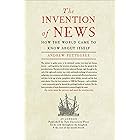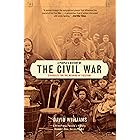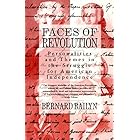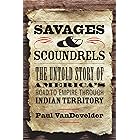Your Memberships & Subscriptions

Download the free Kindle app and start reading Kindle books instantly on your smartphone, tablet, or computer - no Kindle device required.
Read instantly on your browser with Kindle for Web.
Using your mobile phone camera - scan the code below and download the Kindle app.





OK
 Audible sample Sample
Audible sample Sample 


A People's History of the American Revolution: How Common People Shaped the Fight for Independence Reprint Edition, Kindle Edition
Upon its initial publication, Ray Raphael’s magisterial A People’s History of the American Revolution was hailed by NPR’s Fresh Air as “relentlessly aggressive and unsentimental.” With impeccable skill, Raphael presented a wide array of fascinating scholarship within a single volume, employing a bottom-up approach that has served as a revelation.
A People’s History of the American Revolution draws upon diaries, personal letters, and other Revolutionary-era treasures, weaving a thrilling “you are there” narrative—“a tapestry that uses individual experiences to illustrate the larger stories”. Raphael shifts the focus away from George Washington and Thomas Jefferson to the slaves they owned, the Indians they displaced, and the men and boys who did the fighting (Los Angeles Times Book Review).
This “remarkable perspective on a familiar part of American history” helps us appreciate more fully the incredible diversity of the American Revolution (Kirkus Reviews).
“Through letters, diaries, and other accounts, Raphael shows these individuals—white women and men of the farming and laboring classes, free and enslaved African Americans, Native Americans, loyalists, and religious pacifists—acting for or against the Revolution and enduring a war that compounded the difficulties of everyday life.” —Library Journal
“A tour de force . . . Ray Raphael has probably altered the way in which future historians will see events.” —The Sunday Times
- ISBN-13978-1620971833
- EditionReprint
- PublisherThe New Press
- Publication dateMay 24, 2011
- LanguageEnglish
- File size3529 KB
Customers who bought this item also bought
Editorial Reviews
From Publishers Weekly
Copyright 2001 Reed Business Information, Inc.
From Library Journal
Copyright 2001 Reed Business Information, Inc.
From Booklist
Copyright © American Library Association. All rights reserved
Review
"A tour de force…Ray Raphael has probably altered the way in which future historians will see events."
―The Sunday Times (London)
“The unique value of Raphael's work lies in its mining, from extant primary sources, of the extraordinary recollections of ordinary witnesses to history.”
―Booklist
“The nervy energy of this People's History is an arresting antidote to the air of self-satisfied triumphalism that so many Americans casually assume each July Fourth.”
―Fresh Air (NPR)
“A cracking good read…Ray Raphael writes about the American Revolution as if he had been in the thick of it. His no-nonsense approach and style clarify the big issues and reveal the personal dimensions. This is truly a history of the people for the people.”
―Roy Porter, author of Enlightenment
“Raphael uses his considerable gifts as a writer [to weave] a tapestry that uses individual experiences to illustrate the larger stories of social groups.”
―Los Angeles Times Book Review
About the Author
Product details
- ASIN : B01EEQ9C0O
- Publisher : The New Press; Reprint edition (May 24, 2011)
- Publication date : May 24, 2011
- Language : English
- File size : 3529 KB
- Text-to-Speech : Enabled
- Screen Reader : Supported
- Enhanced typesetting : Enabled
- X-Ray : Not Enabled
- Word Wise : Enabled
- Sticky notes : On Kindle Scribe
- Print length : 527 pages
- Best Sellers Rank: #442,998 in Kindle Store (See Top 100 in Kindle Store)
- #84 in Study & Teaching of History
- #130 in Revolutionary History
- #244 in Historical Study & Teaching
- Customer Reviews:
About the author

Ray Raphael is a Senior Research Fellow at Humboldt State University, California. His seventeen books include Founding Myths: Stories That Hide Our Patriotic Past, A People's History of the American Revolution, Mr. President: How and Why the Founders Created a Chief Executive, and most recently Constitutional Myths: What We Get Wrong and How to Get It Right.
Customer reviews
Customer Reviews, including Product Star Ratings help customers to learn more about the product and decide whether it is the right product for them.
To calculate the overall star rating and percentage breakdown by star, we don’t use a simple average. Instead, our system considers things like how recent a review is and if the reviewer bought the item on Amazon. It also analyzed reviews to verify trustworthiness.
Learn more how customers reviews work on Amazon-
Top reviews
Top reviews from the United States
There was a problem filtering reviews right now. Please try again later.
Even better news is the outstanding job Ray Raphael has done of this first effort in that series. He has taken on the overall approach of the 'original', Zinn's "People's History of the United States" and applied it to the "creation myths" of our country in a way that creates real history which is captivating even as it strips the gloss from the schoolboy history handed on for generations.
The really nice thing is that Raphael has accomplished this with a voice that is unique to himself and to this book. No mere expansion of a chapter from the earlier Zinn book, this. Even having read Zinn's book, I found that this one retained the same ability to amaze me with fundamental reexamination of core beliefs.
At its center this book is, more than anything else, a study of how revolution happens. As such it is important reading for anyone who considers how fundamental change might happen in this country, if ever, again. The real myth of our history is not so much the focus on individual heroics or great battles as the implicit claim that our revolution fell into place so neatly, so quickly. Somewhere between chapters 3 and 5 in our history books the Brits passed some taxes, the Colonists rose up in righteous indignation, the battle was at hand - then won.
Raphael demonstrates at length, through original sources created by regular folks, that the whole business was much longer work than that. People don't just rise up overnight, casting off habits of mind and cultural expectations of what can and cannot be done. People don't just sit down and pen some pamphlets or high-sounding declarations and raise armies.
This book shows how, over decades, a broad sweep of reaction against oppressive institutions by everyday people built a solid groundwork which meant that the final "revolution" was neither unexpected nor un-practiced. He describes how many earlier uprisings, revolts, and proto-revolutions radicalized the populace and eroded assumptions about rights of elites. He describes how the vast majority of disenfranchised poor played a fundamental role in shifting those assumptions.
Throughout he reminds us of what a complicated business it was. From the broad in scope - the impossibility of raising a standing army from reluctant and other-committed farmers and family men, (and the consequential injection of a military draft and a messy cash-buyout business) to the narrow - why the "tea party" energized so many common folk to whom tea was the ultimate class icon.
Thoughtful people have learned to be skeptical of delivered history. But it really helps to have something real to counterbalance mere skepticism. This history is real, this is eye-opening stuff, this is the rest of the story.
Raphael explores the history of ordinary Americans in the time of the American Revolution in seven chapters. From the very beginning of the Revolution in the time of the Stamp Act through the Spirit of ’75, women, loyalists, Native Americans, and African-Americans, he explores how the actions of these common people affected the course of the era. The result is a fascinating exploration of history that often is overlooked or downplayed by history books. Gone are the Great Men of History and in their place are men and women who had to make decisions for their own interests and needs.
This is a great book in the sense that it can complement political histories or grand narratives by providing a view to the role of people in the Revolution. That is the best way I think the bottom up approach to history can work. As a college professor, one of the classes I teach is the survey course which covers a huge amount of time in a relatively short period of time. We often have no recourse but to go with the larger view of history as a result. I have found that providing each student with a segment from this book and others like it gives them a glimpse into the ways common people reacted to the events around them. In this way they can begin to understand that history is really nothing more than the actions of millions of people over time.
Some of those people are well known to us while many others are not, but all of their actions are what makes history, not just that of a few. I particularly like how Raphael explores the history of the Stamp Act riots that took place in Boston of 1786. He explains the role of Ebenezer MacIntosh in orchestrating those riots. Yet, most Americans have never heard of this man and what he did. Without Ebenezer’s actions, these riots might not have taken place or been directed against the Stamp Act. Without them, it becomes difficult to say what might have happened. Suddenly, the role of a common becomes important to how things occurred in history.
There are many more tales like this in the book. That is what really stands out. It is a collection of stories and that makes for great history. This was not a good/evil or black/white event. There were many shades of grey before, during, and after the period. People had widely varying reactions to the event itself and acted accordingly. Don’t believe me? Read for yourself and you can begin to understand why people did what they did. Even better, learn how some of these actions would have ramifications for events that transpired long after these people passed away.
The book is easy to read too. Raphael made good use of sources, but instead of writing like a closeted academic he focused on telling a story. The result is a good, fact filled, and entertaining view of history that often eludes many historians’ attempts. I thoroughly enjoyed reading this book and found many uses for it in my history classes.
Top reviews from other countries
Dieses Buch von Ray Raphael zeigt eine Seite dieses Konfliktes, welche sehr schwierig zu erfassen ist, da in der Zeit von 1775 bis 1783 die Meinungen der einfachen Menschen nicht so gut dokumentiert wurden wie heute.
Raphael hat einige der Briefe und Beschreibungen (von denen es bestimmt nur wenige gibt) auf interessante Art und Weise zusammengetragen. Das Buch las sich sehr schnell und öffnet ein Bild über diesen Krieg, das man in Artikeln und Büchern über die Schlachten nie zu lesen bekommt.
Richtig gut und deswegen 5 Sterne.












